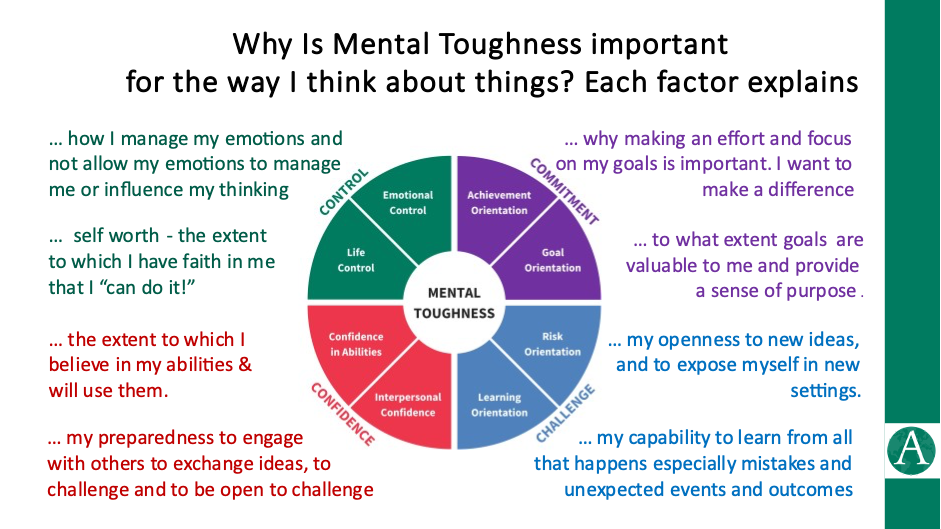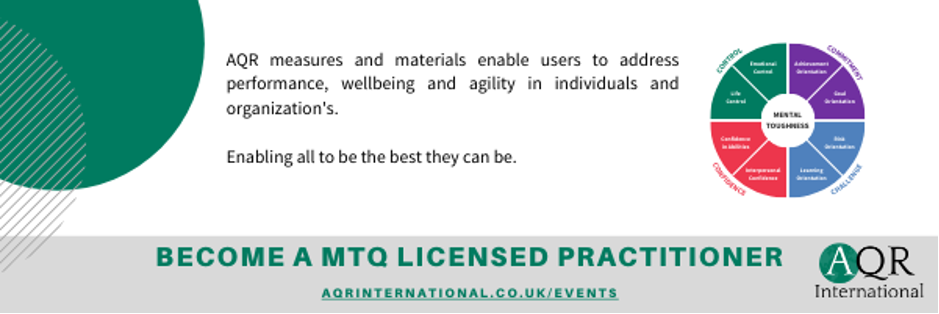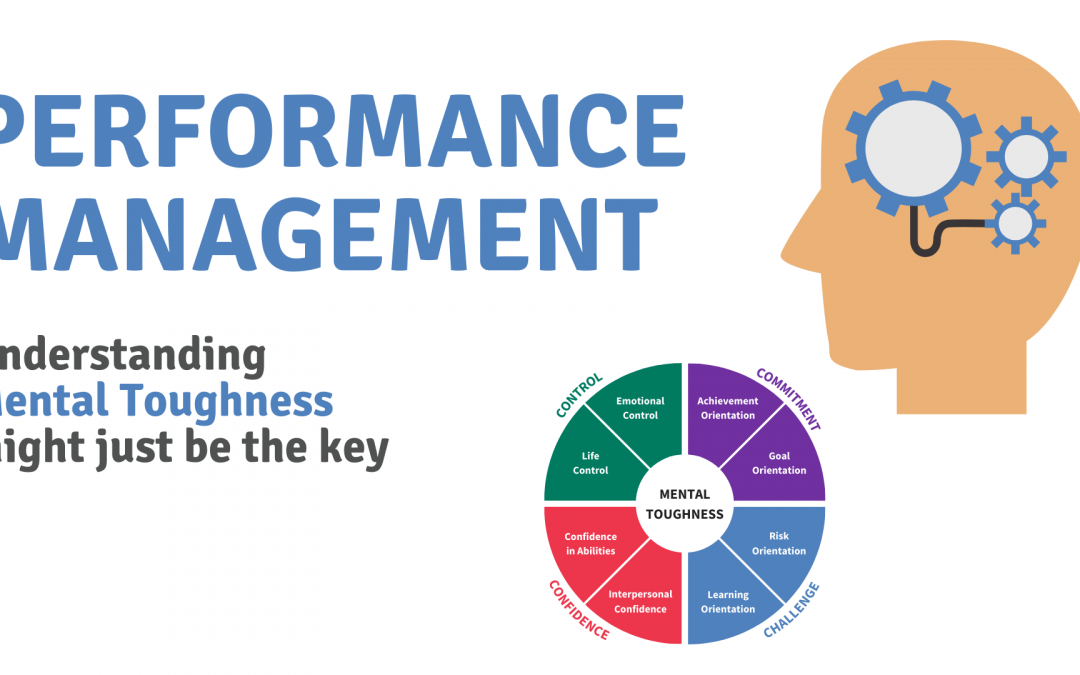Understanding mental toughness might just be the key.
Just before the pandemic struck, and in the good old days before Zoom, I was invited to speak on the relationship between mental toughness and performance to an audience of around 60 HR Directors.
At one point, early in the discussion, I asked “How many here have a performance management system in place?”. 60 hands went up in the air.
I followed up with “How many have a performance management system that delivers what it is supposed to deliver?”. One hand remained in the air. They explored why this might be.
This included things like unclear goals, imposed goals, a culture of suspicion, inadequate training, etc. What did emerge was a consensus that goal-setting itself wasn’t the issue. We don’t come across many who don’t know how to set SMART goals.
The main issue appeared to be the response of the parties to the goal-setting process – both from the manager and the employee. Many organisations present provided training for both parties to the goal-setting discussion but that still didn’t make a great difference.
The mental toughness concept can shine a light on what may be going on here.
So, what is Performance Management?
Traditionally performance management is the process of feedback and communication between managers and employees towards the achievement of the strategic objectives of the organization. Once an annual event, nowadays it’s likely to be more frequent than this.
At its core, there is usually a discussion where the manager sets and agrees on goals with the employee and monitors their progress. Good practice also means exploring the employee’s capability and what needs to be addressed to enable the employee to deliver what is now expected.
In general, we tend to be good at designing systems and processes that logic dictates are reasonable and should be applied with enthusiasm. The confounding factor ….. people!
People are interesting. They respond to events and situations in almost every way possible. Some will see a discussion as an opportunity to be embraced, others will see the same discussion as a threat to be avoided and to be forgotten about as soon as possible.
And we are talking about the managers here as well as the employee.
How can mental toughness illuminate what may be happening?
The mental toughness concept in its 8-factor format provides an insight into what may be happening. Mental toughness is a personality trait, an aspect of all of our personalities, which describes our mental approach to what happens to us and around us as well as to whatever we are engaged in.
Research indicates that there is a number of factors which contribute to shaping our mental approach. This is summarised in the illustration below:

This article focuses attention on the discussion between a manager and employee where goals are set and monitored. An earlier post has looked at the importance of purpose or meaning in goal setting which is also relevant here.
Any discussion works best when the two parties have an equal opportunity to contribute and approach the discussion with broadly the same mindset.
Where this is not the case there is a risk that the discussion fails and performance management is not achieved. This is likely to be more often the case than desired.
The mental toughness framework provides clues as to why this might be happening.
The most obvious starting point is with the Commitment construct.
If one party to the discussion is goal orientated and the other isn’t, the fundamental objective of the process can fall at the first hurdle. A significant number of people are not intrinsically goal orientated and may not buy into the goals set and even “agreed” simply for the sake of completing a discussion.
Similarly, differences in achievement orientation can lead to differences in performance for no other reason than differences in underlying attitudes.
The Control construct adds yet another dimension. Control describes the extent to which we feel in sufficient control of ourselves and our circumstances to be able to achieve what we need to achieve. The less we feel in control, the more stressed we become with its consequence for performance and wellbeing.
Again a discussion between someone who is mentally tough on Life Control, possessing that “can do” spirit”, and someone who is less self-assured is likely to be imbalanced.
The same applies to emotional control. An anxious or nervous participant may feel disadvantaged, allowing their negative emotions to dictate their response, in a discussion with a person who is better able to manage their emotions.
Where goal setting requires the individual to venture into new, different and unfamiliar settings then risk orientation can become a significant factor. An individual who prefers to avoid change and moving out of their comfort zone will respond very differently to someone who sees the opportunity in this and is excited by it.
Learning orientation is likely to come to the fore in the monitoring and review aspects of the performance management process. Those who are more reflective will participate more comfortably in performance management discussions.
Finally, confidence can also be very relevant.
Confidence in abilities describes the extent to which someone has self-belief in their abilities and will use them. This may be significant if performance is dependent on exercising abilities.
Interpersonal confidence will be a factor in the discussion itself, as well as in the performance of a task. The effectiveness of a discussion in which both parties agree to a demand will rest on both parties being able to contribute equally.
An important note, Although the previous discussion might, at first sight, appear to suggest that the employee is generally more mentally sensitive than a manager, this is not always the case. This analysis applies to both parties in the process.
In conclusion
The mindset of both parties within the performance management process can play a significant part in its success. It’s not hard to understand why. The meeting I described at the beginning of this article is a good example.
The challenge here is that we are dealing with something that is in the mind – it is invisible and there is a large quantity of nuanced complexity in that there are components to the way we think.
Yet it is patently worthwhile managing this ‘hidden’ element.
The mental toughness concept provides a framework for enabling this to be done.
The MTQPlus, the associated psychometric measure, enables a reliable assessment of a person’s mental toughness across all its factors.
The capability to improve Performance Management already exists.

For more information about Mental Toughness see www.aqrinternational.co.uk.
Listen to our ‘Talking Toughness’ podcasts where professionals from around the world are applying the 4Cs Mental Toughness concept to all walks of life and work.
To learn how to be a licensed user of the mental toughness concept and the MTQPlus measure, contact headoffice@aqr.co.uk


